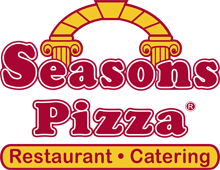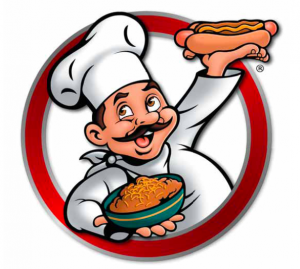Call 303-808-4680
Building Your Brand: Warren Ellish contributes feature story to the Publican Magazine Winter 2012 issue

Is your beverage licensee brand strategically positioned with its message clearly communicated? Are you sure?
You don’t have to embark on a lengthy and expensive consumer research study to find out if your beverage licensee brand is strategically positioned with its message clearly communicated. Just try this quick and easy exercise. You may be surprised by what you learn.
Ask each member of your management team, each member of your marketing organization, and key external strategic and creative resources to answer the following three questions:
- 1. What business is your brand in? Your “frame of reference”.
- 2. What is the “target market” for your brand?
- 3. What are the “points of difference” for your brand? Note: List no more than three.
Analyze your results. If you observe either or both of the following, your brand positioning can most definitely be strengthened:
- Significant inconsistency in the answers to most if not all of the above three questions.
- “Points of difference” that are really “points of similarity” to your competition or simply “points of entry” in your business – and not pre-emptive, ownable and defendable attributes that are important to your target market.
Successfully identifying and securing a powerful brand positioning is of critical importance to every brand. It is crucial to anyone who wants to influence other people, whether you are promoting a product, a service, a cause, a candidate, an organization, an institution or even yourself and your own career. Positioning will aid in getting your desired message across to the people you want to reach and making an impression that lasts. Positioning is the way in which you want the consumer to think about your business (products and services) relative to competing brands. It is the most basic of all strategic statements, provides the blueprint for the marketing and development of the brand, and focuses the efforts of all those involved in brand activities.
Without a concise brand positioning statement with a competitive “point of difference” and complete management alignment behind this positioning, it will be difficult to communicate a clear and meaningful message about your brand. A brand must make a strong impression that lasts and translates into profitable sales and long-term growth.
What are the three critical elements of a brand positioning statement?
1 – Target Market: Composed of consumers considered to be good potential users for your product/service. Don’t think demographically. Think about what the similar set of needs and/or concerns are which motivate this group of consumers’ purchase behavior.
2 – Frame of Reference: Describes the consumer grouping of like products or services (or competing brands) with which your product or service competes. It is easy to think about this as “what business are you in”. Make sure you consider all of the options that a consumer has available to satisfy a specific need.
3 – Point of Difference: The specific consumer benefit that you want consumers to associate most readily with your product or service. What does your brand do that no other brand does as well and that your target cares about? Why should your target value your brand?
Don’t let a point of similarity become your point of difference. One of the critical steps in developing a powerful brand positioning is to identify your brands point of difference – – the specific consumer benefit which you want consumers to associate most readily with your product or service. So when defining your brands point of difference, don’t let a point of similarity become your point of difference. So often I see this.
When speaking recently to industry audiences on branding and brand positioning (National Restaurant Association, International Franchise Association National Convention, Entrepreneurs’ Organization Global Leadership Conference) or to the executive teams of clients, I ask three short questions: How many of your grew up wanting to be average? Or just like everyone else? Or of good quality? Rarely do I see any hands or much of a positive response. However, many brand leaders are perfectly OK about making their brands just like this – – average and just like everyone else.
Many of the items that are an integral part of your product/service but are not preemptive, ownable and defendable become points of entry into your competitive set and are nothing more than points of similarity. Yes, they are all important to your product or service and in many cases you must deliver on these flawlessly just to be in business. But this is not what sets you apart, not a reason a customer should or will choose to use your brand over competitor brands, and most definitely this is not a reason for them to ever become a brand advocate.
A brand is not a mark. A brand leaves a mark. Believe it or not, your customers do not really care about your brands’ name, your logo, or your tag line. What they do care about is who your brand is, what it stands for, what your brand offers and why your brand is different. People want to love brands. They want to feel amazing about using your brand. So stop worrying about the name of your brand, your logo or your tag line. Focus you attention on clearly positioning your brand and gaining complete management alignment behind that positioning. The end result will be the development of a concise positioning statement, agreed upon by your core management team.
Properly position your brand and you will be in good company. I’ve worked with hundreds of global, national, regional and local brands including many restaurants, bars, wine and spirits retailers, brewers, wineries and distillers – – all using a disciplined approach to developing a clearly defined brand positioning statement. Each of these clients that focused their attention on brand positioning have reaped the benefits of their efforts.
Ellish Marketing Group introduces new marketing campaign with a focus on guest acquisition for Souplantation and Sweet Tomatoes Restaurants
 number of new guests for the brand. FSI’s will also be a part of the marketing effort.
number of new guests for the brand. FSI’s will also be a part of the marketing effort.
NBC News: Chick-fil-A out of the fryer, into the fire with Ellish Marketing Group president and CEO, Warren Ellish
By Martha C. White
Chick-fil-A is playing a high-stakes game of chicken that has nothing to do with its sandwiches.
President Dan Cathy’s public stance on gay marriage kicked off a firestorm that could hurt its sales and growth prospects, although restaurant analysts say support from the religious right in core markets could make the overall business impact a wash. But to sustain this uneasy equilibrium, the company has to avoid saying or doing anything to further inflame two opposing groups of consumers.
The Atlanta-based food chain is fending off accusations of hostility to the LGBT community following Cathy’s comments in support of traditional marriage and the “biblical definition” of families.
Then came the backlash to the backlash: A second elected official in Chicago challenged the push to keep the company from opening a new restaurant there, Republican politicians Mike Huckabee and Rick Santorum voiced their support for the company, and supporters rallied around the idea of a “Chick-fil-A Appreciation Day.”
On Friday, New York City’s Mayor Michael Bloomberg weighed in, saying that it’s “none of the government’s business.”
A few days after Cathy’s statements became public, Chick-fil-A issued a statement saying, “Going forward, our intent is to leave the policy debate over same-sex marriage to the government and political arena.”
That would be wise, said Tim Calkins, professor of marketing at the Kellogg School of Management at Northwestern University.
The emergence of two strong, polarized public responses puts the company in a tough spot, he said. “There are people who strongly support their position, which means the company can’t backpedal too much,” he said. “They could risk turning off a significant number of customers” with expressions of solidarity for either camp.”
“I’m not sure they should be trying to make one customer group happy over another,” said Eric Giandelone, director of food service research at Mintel. “From a food perspective, [they should] try and bring in as many customers as they can.”
Analysts are divided on to what extent this controversy will affect the company’s bottom line. “I don’t think it’s going to make much of a difference in the long term,” Giandelone said. “They’re almost kind of netting each other out.”
This effect isn’t going to be homogenous, though; when the dust has settled, there could be a much sharper delineation between which markets are friendly to Chick-fil-A and which aren’t. This appears to be happening already: According to a YouGov BrandIndex survey, the chain’s reputation among consumers fell sharply in nearly all regions of the country following Cathy’s remarks. The exception was the Midwest, where its score climbed higher for a brief period of time, then returned to its previous position.
In markets like the Bible Belt, where the company has its roots, “It will probably strengthen their brand and strengthen their sales,” said Warren Ellish, president and CEO of Ellish Marketing Group, LLC. “Communities keeping them out will obviously hurt them.”
Ellish suggested that the company might just walk away from places where it receives a chilly reception. “As a privately held company, they have the right to do that,” he said.
“They’ve been willing to give up one of seven days worth of sales,” he said, referring to the chain’s rule of keeping all its restaurants closed on Sundays. He added that executives might say, in effect, “If we miss a few markets where the brand’s not welcome, we’re no worse.”
Your Restaruant As a Brand: Interview on Branding and Brand Positioning with Warren Ellish on Foodservice Radio, the new streaming 24-hour internet radio station programmed for restaurant and food service operators launched at the National Restaurant Show.

Creating a brand around your restaurant has many benefits. A clear, concise brand statement can drive marketing, development and even operational activities. In a Foodservice Radio interview, Warren Ellish, Senior Lecturer at Cornell University and CEO of Ellish Marketing Group talks about how you can turn your restaurant – large or small – into a world class brand.
To listen to the complete interview visit Food Service Radio or at iTunes.
Excerpts from the interview:
There are many misconceptions about branding among food service operators. “Most people think of a brand as mark,” says Ellish. “It is not a mark, a brand leaves a mark. What is really interesting is that restaurant customers don’t really care about a brand name, logo or tag line. What they really care about is who your brand is, what it stands for, what your brand offers, and very importantly, why your brand is different.”
“Brand positioning is the way anyone wants the consumer to think about their product or service relative to competing brands,” Ellish adds. “It is the most basic of all strategic statements. It provide the blueprint for all the marketing and development of any brand and it focuses the efforts of all those involved in brand activities. It states the reason for a brand’s existence.”
There are “three questions that will help people easily determine if their brand is strategically positioned and if their message is being clearly communicated,” says Ellish. “They are ‘What business is your brand in; what is the target market for your brand; and what is the point of difference for your brand?’”
Ellish suggests putting the answers to those questions together into a simple brand positioning statement, “To (your market target), (your brand) is the brand of (your competitive set) that offers (your point of difference).”
This exercise often points out the weaknesses in the current brand positioning. “What’s really interesting is when I do this exercise, whether it is with a small entrepreneurial group or a very large corporate environment, you find significant inconsistencies in the answers. Most members of the team list points of similarity and not points of difference,” says Ellish. “Make sure your reason for being is exclusive and unique, and make sure using your brand becomes a true experience for your guests.”
Defining your brand positioning also helps with social media. It helps your customers remember exactly what you want them to know about your brand. Those customers will in turn communicate that message to others.
When it comes to branding, “The little guy has as much opportunity as the big guy,” Ellish concludes. “All they have to do is make sure they go through and position their brand and make sure that have a preemptive, ownable and defendable point of difference. If they don’t, then there is no reason for anyone to become a loyal follower and an advocate of their brand.”
For more information or to contact Mr. Ellish, visit www.ellishmarketing.com or call 303-762-0360.






